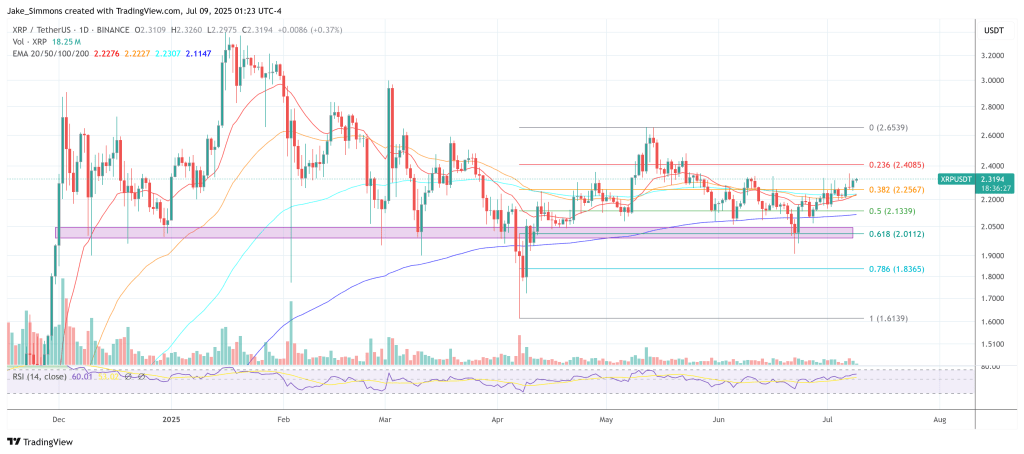Ripple CEO Garlinghouse Drops Bombshell Testimony for US Senate Today – Here’s What’s Coming
Brad Garlinghouse is stepping into the political arena—again. The Ripple CEO’s Senate testimony today could send shockwaves through crypto regulation. Here’s the breakdown.
The Stakes: With XRP’s legal saga still simmering, Garlinghouse isn’t holding back. Expect fireworks on how outdated policies are strangling blockchain innovation.
The Playbook: Watch for his push for clear rules—while Wall Street quietly hedges its bets with Bitcoin ETFs. Because nothing says 'adoption' like institutional double-dipping.
The Bottom Line: Whether lawmakers listen or not, this is crypto’s latest high-stakes lobbying play. And the clock’s ticking before the next bull run leaves regulators in the dust.
What Ripple Wants Lawmakers To Hear
Garlinghouse opens by reminding senators that Ripple was created “more than a decade ago with a mission: to enable the Internet of Value — a world where money moves like information does today”. He describes the XRP Ledger as “decentralized, battle-tested” infrastructure that already powers “fast, low-cost and highly scalable” cross-border payments for banks worldwide . Ripple, he notes, operates under “over 60 payment service, crypto and money-transmitter licenses” precisely because it “made the deliberate choice to work with policymakers and regulators — not around them”.
The Core of the testimony is an indictment of Washington’s policy vacuum. “For the last decade, the legal and regulatory uncertainty surrounding crypto has prohibited meaningful progress in the US,” Garlinghouse warns, arguing that the absence of clear rules “has been weaponized to target good actors” and is “pushing technology, jobs and tax dollars offshore, reducing regulatory oversight and putting consumers at higher risk”.
He cites Ripple’s own four-year litigation with the Securities and Exchange Commission as emblematic. The 2020 SEC lawsuit, he recalls, made Ripple “the tip of the spear of this regulation-by-enforcement campaign,” yet the company ultimately prevailed: “The court ruled in our favor on everything that mattered — including finding that the token XRP is not, in and of itself, a security”. That outcome, he contends, opened the door for other US crypto firms to fight back.
Garlinghouse then lays out three legislative priorities: 1) clear jurisdictional boundaries among regulators, 2) workable pathways for companies to build in the United States without sacrificing investor safeguards, and 3) a framework that lets America “be a global leader in crypto by taking full advantage of the benefits and efficiencies brought by digital assets and blockchain technologies”. With an estimated 55 million US crypto users and a $3.4 trillion global market capitalization on the line, he argues, the stakes are national—not merely corporate.
“Speaking on behalf of the entire crypto industry, I urge you to prioritize the passage of market-structure legislation for digital assets through this Committee and the full Senate,” Garlinghouse tells lawmakers, predicting that such a step WOULD “catalyze a new era of US competitiveness and unlock efficiencies in financial transactions”. He closes with a challenge: “There is no reason we should not be the undisputed leader in digital assets and blockchain”.
Whether those words MOVE the legislative needle will become clearer as the hearing unfolds, but Garlinghouse’s testimony sets the tone: cooperation over confrontation, clarity over uncertainty—and a blunt warning that the window for US leadership is narrowing fast.
At press time, XRP traded at $2.31.


